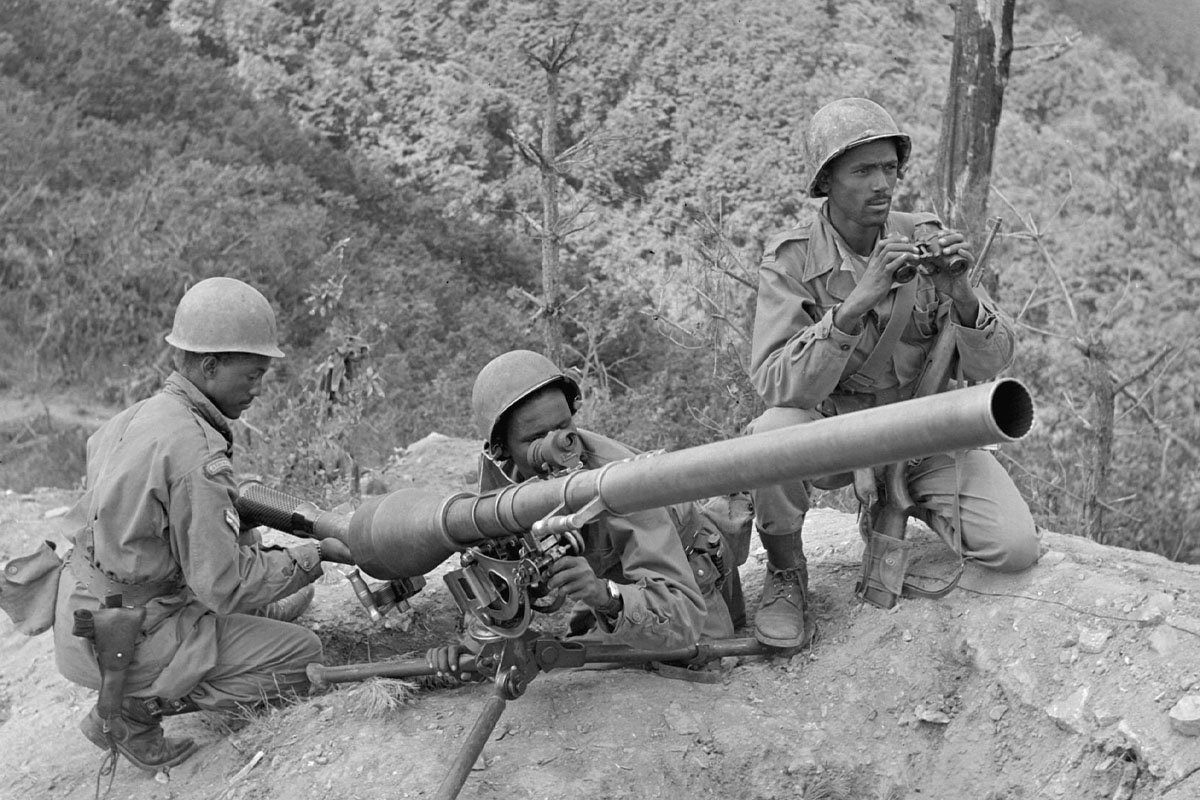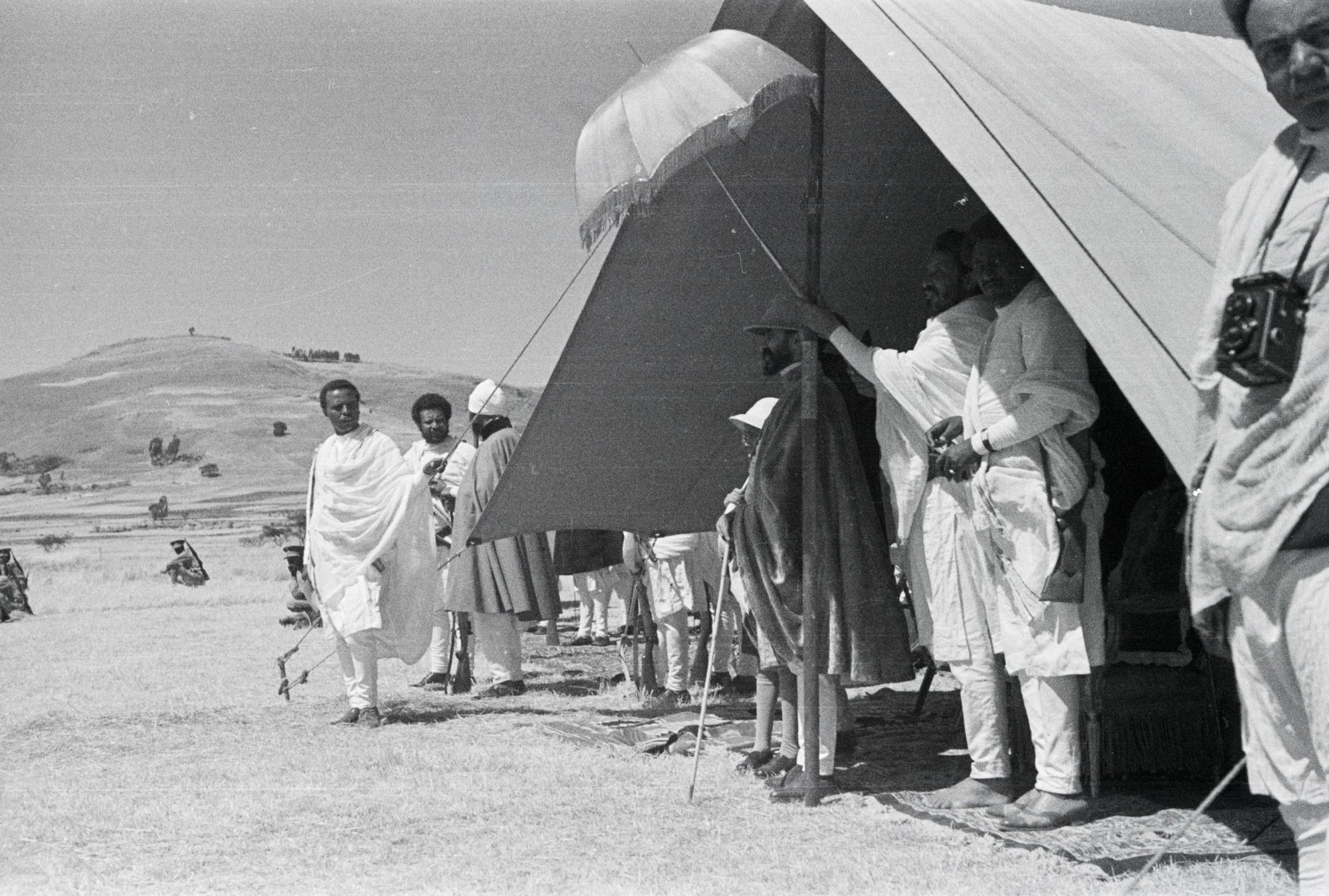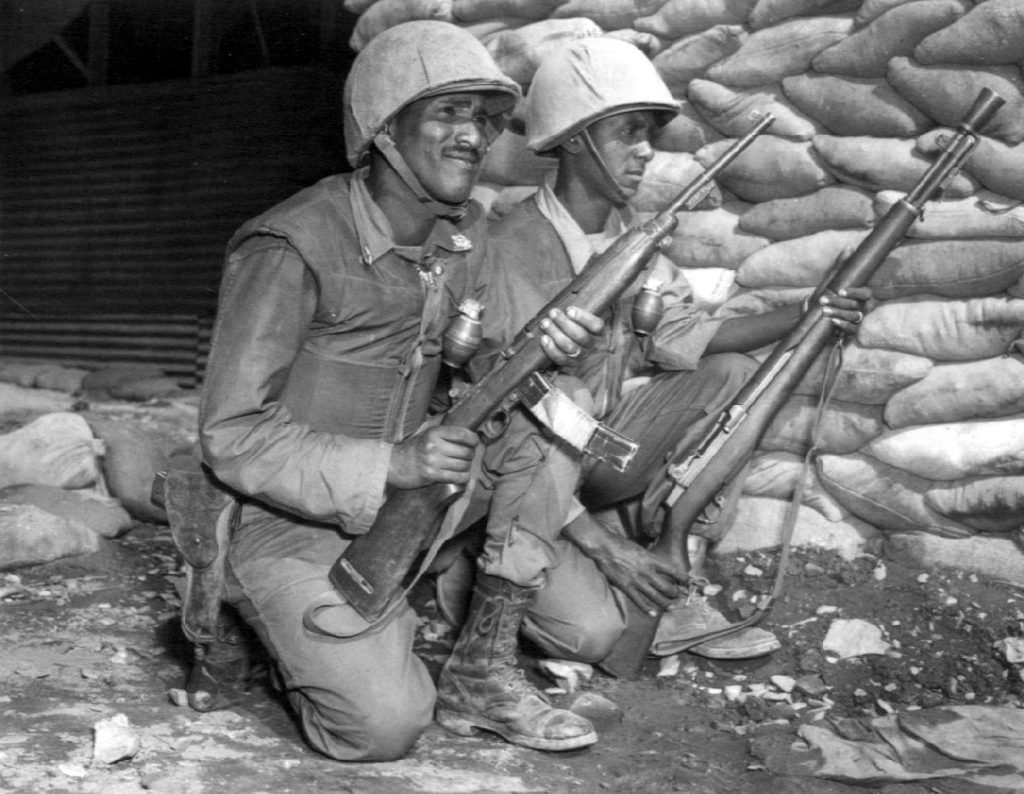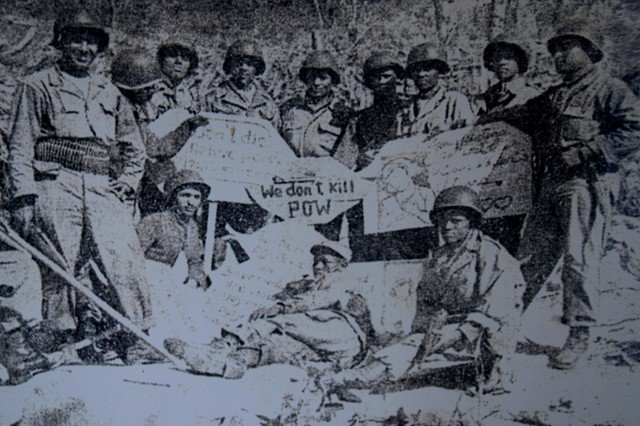The Kagnew Battalion: Ethiopian Troops Who Fought Alongside Americans During the Korean War

Ethiopia was the first nation in Africa to contribute a complete unit of ground troops to the UN Korean command. Three Ethiopian gunners from Addis Ababa preparing to fire a 75mm recoil-less rifle. Photo courtesy of Wikimedia Commons.
In June 1950, the United Nations formed a coalition to fight against North Korean and Communist Chinese troops in anticipation for the Korean War. Among their forces were the usual suspects: the United States, France, the United Kingdom, Canada, Australia, and New Zealand. A surprise entry in the war effort was Ethiopia, an East African country that shared its border with five nations including Somalia to its east and Sudan to its west. Ethiopia was the only country from the African continent to enter the conflict.
Ethiopian Emperor Haile Selassie had seen firsthand the terror of communist and fascist ideologies employed against his homeland. Benito Mussolini, the prime minister of Italy, led a brutal campaign from 1935 to 1941, which forced Selassie to go into exile. Selassie condemned the League of Nations for its inability to respond and felt betrayed by the United Kingdom’s efforts to control Ethiopia’s resources. Following his country’s occupation and the regaining of its independence, Selassie formulated his unusual quest for new allies in the West on a US warship off the coast of Egypt in 1945.
President Franklin Delano Roosevelt and Emperor Selassie, over tea, discussed opening a port in Djibouti. When the United States requested its support five years later, Selassie called upon his very best troops. He ordered five battalions from his Ethiopian Imperial Bodyguard — an elite infantry division that received advanced training from the Swedish military in the 1930s — to combine and become the Kagnew Battalion.

“Virtually all range from six feet to 6 feet 4 inches in height, and all appear lean and rangy,” the Kansas City Star reported in 1951. “The battalion is made up of the palace guard, and it means that every man in the outfit has been carefully selected for superb physical condition and fighting qualities.”
The Kagnew Battalion sourced its name from the white horse that Selassie’s father rode into battle against the Italians at a turning point in their war. However, the battalion was about to foster its own identity among the snowy hills in Korea. They set sail from the port in Djibouti for three weeks to Pusan, where they linked up with the US Army’s 7th Infantry Division, 32nd Infantry Regiment.
Despite training in the Ethiopian Highlands for eight months prior to their arrival, nothing could have prepared the soldiers for the harsh winter environment they were thrust into. “It was very cold,” said Sgt. Asfaw Abebe, noting when they first arrived they hadn’t been issued the proper cold-weather gear. “Only our eyes were visible and everything else was covered. There is no other country with more snow than Korea.”
While American troops were still overcoming desegregation among its ranks, the Ethiopians valued merit over skin color. “You know, Ethiopia has a 3,000-year history as an independent country,” said Capt. Mamo Habtewold, a Kagnew Battalion soldier who fought in 1953. “We Ethiopians were proud and boasting that we were Ethiopians. We don’t care about any colour. The Americans didn’t call us ‘Negro’ as we would be angry.”

The Kagnew Battalions were issued American equipment and weapons. They soon impressed their new allies for their “special affinity for moving and fighting in the dark,” said Dr. Ahmed Hassen, director of the Institute for Ethiopian Studies at the University of Addis Ababa. “Further, the Ethiopians spoke, always in an unknown tongue. This hexed the enemy as he was fighting a phantom.”
On one night in May 1953, Habtewold led a small patrol composed of 14 Ethiopians and one American. As they peeked over the hilltop to scout the area below, they came under heavy fire from a massive Chinese force. An estimated 300 Chinese assaulters surrounded their position, outnumbering them 20 to 1. Three Ethiopians and the lone American were immediately killed. A Chinese soldier tried to ambush a radio operator and take him hostage. Habtewold killed the soldier with his rifle, rescued his teammate, and attempted to call for reinforcements and artillery fire, but the radio had been damaged.
Habtewold was hit several times and fainted twice from blood loss as the fighting progressed through the night. The Kagnew Battalion’s motto was: “Never be captured on the war field.” A pistol in his hand, Habtewold would rather have committed suicide than fall into the enemy’s grasp. After passing out a third time, he was down to a single hand grenade. Without a working radio, they were going to be overrun.

He ventured out into the open, picking up rifles and ammunition from the enemy who lay dying, and maneuvered toward the position of one of his radio operators. He retrieved his lifeline, and through broken English, he provided battlefield coordinates to the Americans waiting on standby. The artillery pummeled the hill, stopping the Chinese advances.
As the artillery kept Chinese heads down, reinforcements soon arrived under the cover of smoke grenades and helped rescue his patrol — every one of his men dead or wounded. Habtewold was awarded Ethiopia’s highest medal for valor, and the US military awarded him the Silver Star, the third-highest medal for valor in combat.
The Kagnew Battalions fought in 253 battles in the areas of Pork Chop Hill, T-Bone, and Old Baldy. All 121 Ethiopian soldiers who were killed were brought home alongside an additional 536 wounded.
“We were the best soldiers,” Habtewold reflected, “and no Ethiopian soldier was taken prisoner during the Korean War.”

Matt Fratus is a history staff writer for Coffee or Die. He prides himself on uncovering the most fascinating tales of history by sharing them through any means of engaging storytelling. He writes for his micro-blog @LateNightHistory on Instagram, where he shares the story behind the image. He is also the host of the Late Night History podcast. When not writing about history, Matt enjoys volunteering for One More Wave and rooting for Boston sports teams.
BRCC and Bad Moon Print Press team up for an exclusive, limited-edition T-shirt design!
BRCC partners with Team Room Design for an exclusive T-shirt release!
Thirty Seconds Out has partnered with BRCC for an exclusive shirt design invoking the God of Winter.
Lucas O'Hara of Grizzly Forge has teamed up with BRCC for a badass, exclusive Shirt Club T-shirt design featuring his most popular knife and tiomahawk.
Coffee or Die sits down with one of the graphic designers behind Black Rifle Coffee's signature look and vibe.
Biden will award the Medal of Honor to a Vietnam War Army helicopter pilot who risked his life to save a reconnaissance team from almost certain death.
Ever wonder how much Jack Mandaville would f*ck sh*t up if he went back in time? The American Revolution didn't even see him coming.
A nearly 200-year-old West Point time capsule that at first appeared to yield little more than dust contains hidden treasure, the US Military Academy said.












